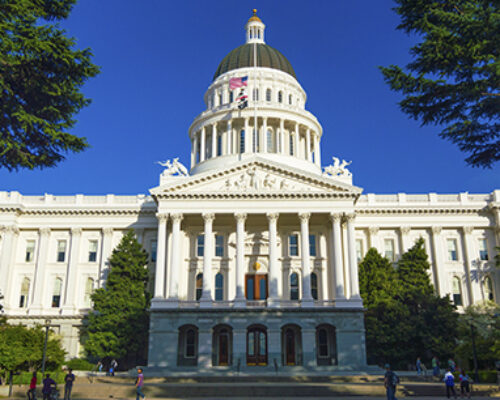
The 2019-2020 Legislative Session concluded in the early hours of the morning on September 1st after a long, arduous, and frantic last night of session that saw tempers flare in the Senate as remote-voting Republicans and Democrats fought over controversial measures and procedural matters.
Due to the covid-induced truncated legislative timeline, both houses convened through the weekend in order to get through their heavy workload to meet the August 31 constitutional deadline. Unfortunately, remaining items in the Senate’s Housing Bill Package, SB 1085 (Skinner), SB 1120 (Atkins) and SB 995 (Atkins) failed. Interhouse tensions ran thick and the Assembly ran out the clock. All three measures were held on the Senate floor before they could be taken up for concurrence vote. While these important housing production bills failed, AB 725 (Wicks), which ensures that more land is zoned for moderate-income housing, and AB 2345 (Gonzalez), which creates more incentives for the housing density bonus law, and AB 831 (Grayson) which provides clarity for the use of SB 35 to streamline housing projects, are now headed to the Governor’s desk
Last Thursday, the Governor and leadership in both houses also struck a deal on tenant protections and to provide some relief and certainty to small landlords and single-family homeowners that they are entitled to a fair chance to modify their mortgage payment obligations. 72 hours after the AB 3088 (Chiu) had been in print, the Senate passed the bill to the Assembly with very little debate on the floor and a bi-partisan consensus that they had to act to provide tenants and landlords more certainty and give guidance on the issue to help avoid a wave of evictions and foreclosures before the end of the year (note, protections last through February 1st). The Assembly Housing Committee then held a very brief hearing after 9 p.m. last night and passed the bill with over ⅔ supermajority needed, and the bill was signed by the Governor just before midnight.
The Legislature will reconvene on December 7th, 2020, when the few newly elected members are sworn into office and new legislation can be introduced. Please take note that ALL bills that did not pass this week are officially DEAD – the session is officially over.
Bills Signed Into Law:
AB 3088 (Chiu): Legislative Compromise on Tenant Protections and Mortgage Forbearance for small landlords and single-family homeowners.
Bills Heading to the Governor’s Desk:
AB 3182 (Ting); This bill was amended last week to include the original version of AB 953, the ADU technical clean-up bill. Passed and headed to the Governor’s office.
AB 1851 (Wicks): Requires a local agency to ministerially approve a request to reduce or eliminate any parking requirements on the development if the housing development project qualifies as a religious institution affiliated housing development project. Passed on concurrence and heading to the Governor’s office.
AB 2553 (Ting): Emergency Homeless Shelters. Based on the successful AB 932 pilot applied to Oakland, Berkeley, and San Jose, extends single-city pilot to the State for five years flexible standards needed to get homeless shelters built quickly and safely by imposing safety standards reviewed by HCD rather than the strict application of State Building Code to streamline. Passed on concurrence and heading to the Governor’s office.
AB 2345 (Gonzalez): This bill would increase financial incentives within density bonus law. New amendments now allow for two incentives or concessions by specifying that a project include at least 17 percent of total units for lower income households, rather than 20 percent, in order to qualify; reduce the threshold to qualify for three incentives or concessions by specifying that a project include at least 24 percent of total units for lower income households, rather than 30 percent, in order to qualify; delete provisions that would have provided for four, five, or six incentives or concessions; revert to existing law the paragraph that provides for four incentives or concessions if 100% of the units in a project are for lower income households; and a strange compromise between making incentives easier to get and reducing how many incentives overall are available.
Bills Held by the Legislature:
SB 1085 (Skinner): This bill would require a city or county to grant a density bonus if the developer agrees to construct a housing development that will contain that specified percentage of units for persons and families of moderate income.
SB 995 (Atkins): This bill would expand the application of streamlining the CEQA process to smaller housing projects that include at least 15 percent affordable housing. It also would broaden application and utilization of the Master Environmental Impact Report (MEIR) process, which allows cities to do upfront planning that streamlines housing approvals on an individual project level. The bill would extend and expand a program that has generated 10,573 housing units and created nearly 47,000 jobs since 2011.
SB 1120 (Atkins): Builds off state Accessory Dwelling Unit (ADU) law that allows for at least three units/parcel; further encourages small-scale neighborhood development spearheaded by homeowners by creating a ministerial approval process for duplexes and lot splits that meet local zoning, environmental and tenant displacement standards.
